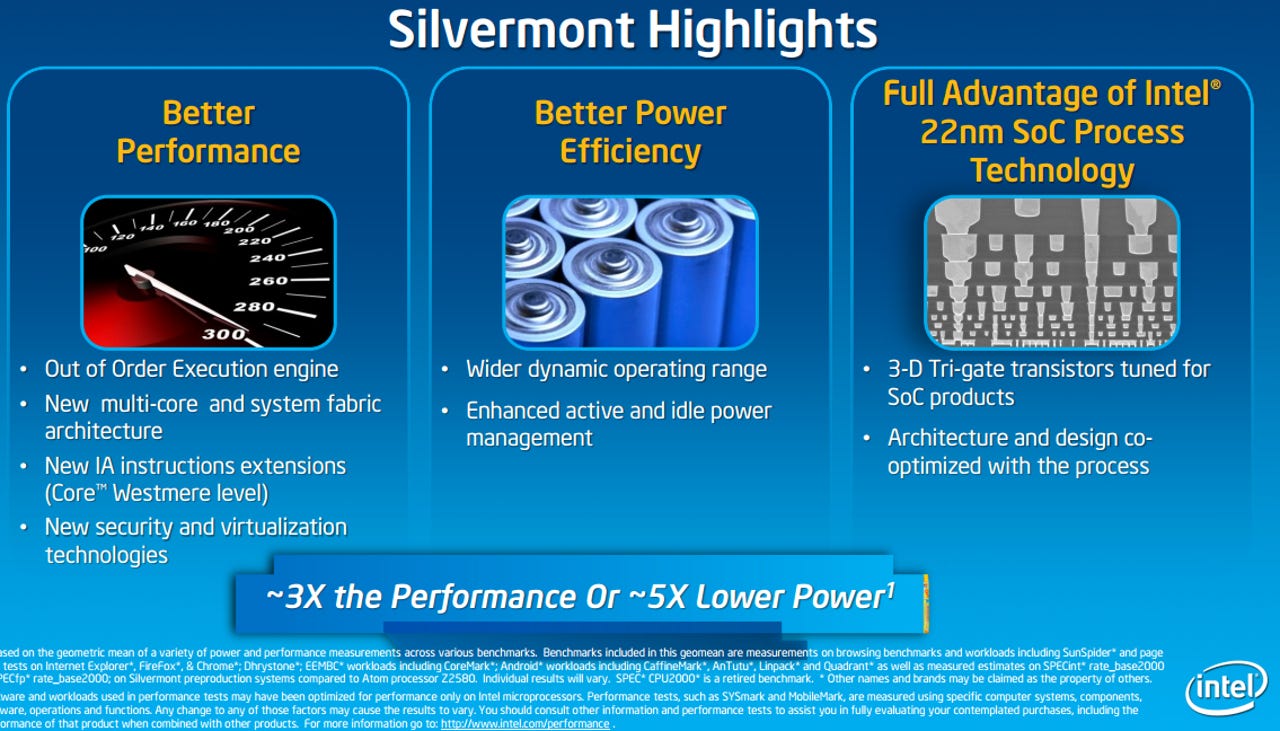Intel's Haswell launch may take backseat to Atom vs. ARM

Intel is widely expected to launch its latest PC processors at Computex, which will outline an array of new Windows 8 devices, but the real game may revolve around Atom's future roadmap and mobility.
Naysayers will note that the chip giant's prospects against the ARM architecture aren't good. These naysayers are also likely to add that Intel's Haswell-based chips are designed for a PC industry that is getting thumped by tablets.
The argument against Intel goes like this:
- ARM, a low power processor architecture, will dominate as mobile computing (smartphones and tablets) routs PC sales in the years ahead.
- Intel's manufacturing prowess and focus on performance is a waste in an era of good enough computing.
- Intel doesn't seem to have a mobile answer that's been given a thumbs up by the market.
- New Intel CEO Brian Krzanich is likely to stay the course so the chip giant may never solve for ARM.
Folks following the semiconductor industry can recite those arguments in their sleep. To many folks, Qualcomm is the new Intel. Of course, Intel begs to differ with that opinion.
Now there's an increasingly vocal chorus of analysts who believe that Intel can solve for ARM and ultimately pass that architecture in mobile computing. In other words, Intel's recent design wins with Samsung and Asus at ARM's expense are just the beginning.
These analysts are largely backing Intel based on the company's next-gen Atom roadmap dubbed Silvermont. Intel presented its roadmap earlier this month and plans to improve Atom every year. Silvermont will have a burst frequency to handle various use cases.

In a massive report this week, Wells Fargo analyst David Wong outlined the case for Intel. The bottom line is that Intel should be viewed as a universal processor company, not just one tethered to the PC industry.
Here's a look at Wong's money quotes:
We believe that Intel’s strong technology position could give Intel’s tablet and smartphone products a competitive edge over ARM-based chips in 2014 and 2015, and beyond.
And:
Intel management has "also put in place what we consider to be an appropriate strategy to penetrate the tablet and smartphone space."
And:
The investment community is appropriately enthusiastic about the wave of mobile computing that is sweeping the globe. However, we think that many investors incorrectly conclude that the growth potential associated with this is limited to smartphones and tablets driven by ARM-based processors.
How will Intel back up Wong's quotes? Wong's bet is that Intel can capture more than 10 percent of the smartphone market and 30 percent of the non-Apple tablet market. Wong also noted that Apple could use Intel's Atom chip at some point in the future for the iPad.
According to Wong, Intel's roadmap indicates that Atom will surpass ARM in power and performance in the future. However, Intel's Atom gains won't move the revenue needle too much relative to other businesses.
Morgan Stanley analyst Joseph Moore also noted that Intel's Atom roadmap could ding ARM's momentum. Moore said:
Atom could be a game changer in Windows 8 tablets. In fact, we would ask the question, does Microsoft need to keep investing in Windows on ARM? The Windows on ARM initiative was born of Intel’s failure to produce compelling performance per watt. With significantly improved CPU performance, and consumers’ preferences for legacy PC applications that run best on x86, we think Intel can achieve leading share in Win8 tablets and some footing in Android. We estimate Intel will ship 50M Atom chips for tablets, the majority being Win8, by 2015.
The difference this time for Intel is that its Atom roadmap is designed to optimize power per watt from the ground up.
If all goes well, Intel's Atom platform — and tablets — that will cannibalize the ultrabooks powered by the company's i-series being shown off at Computex. That "if" is a big one, but more analysts are giving Intel the benefit of the doubt and thinking it can turn back ARM's momentum.